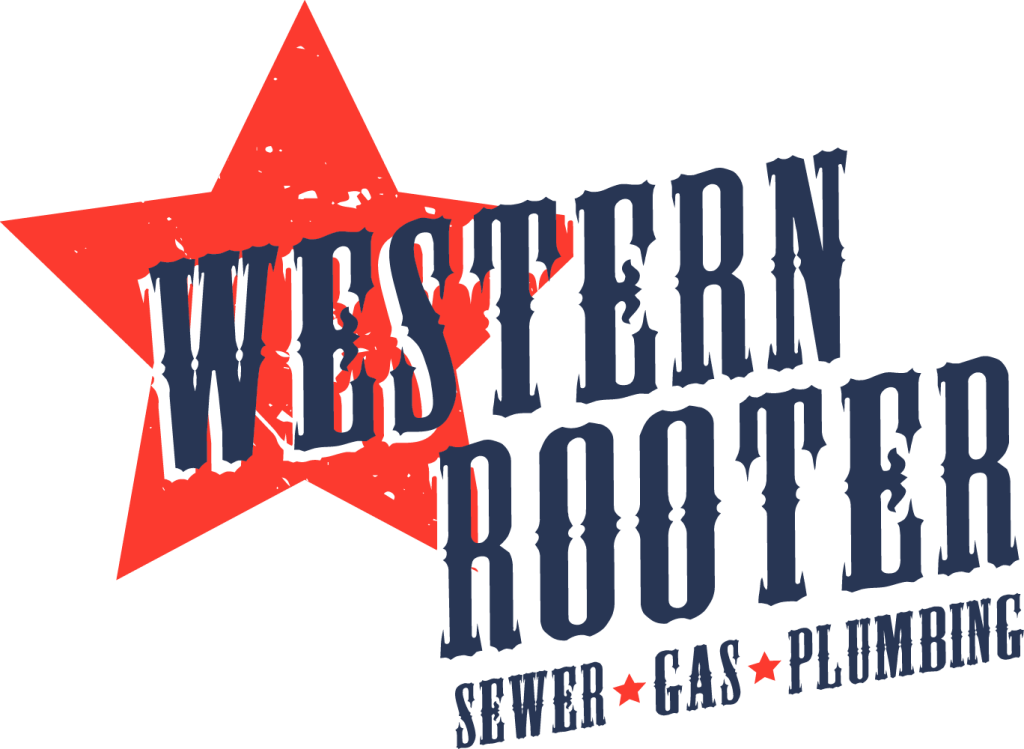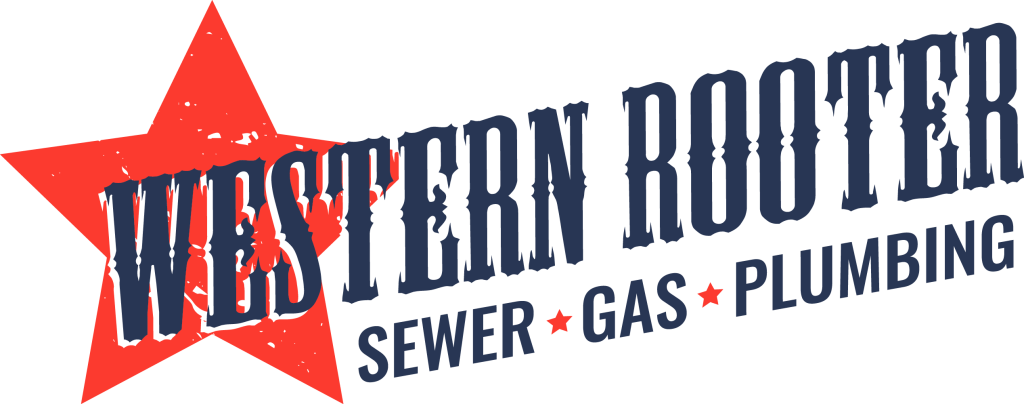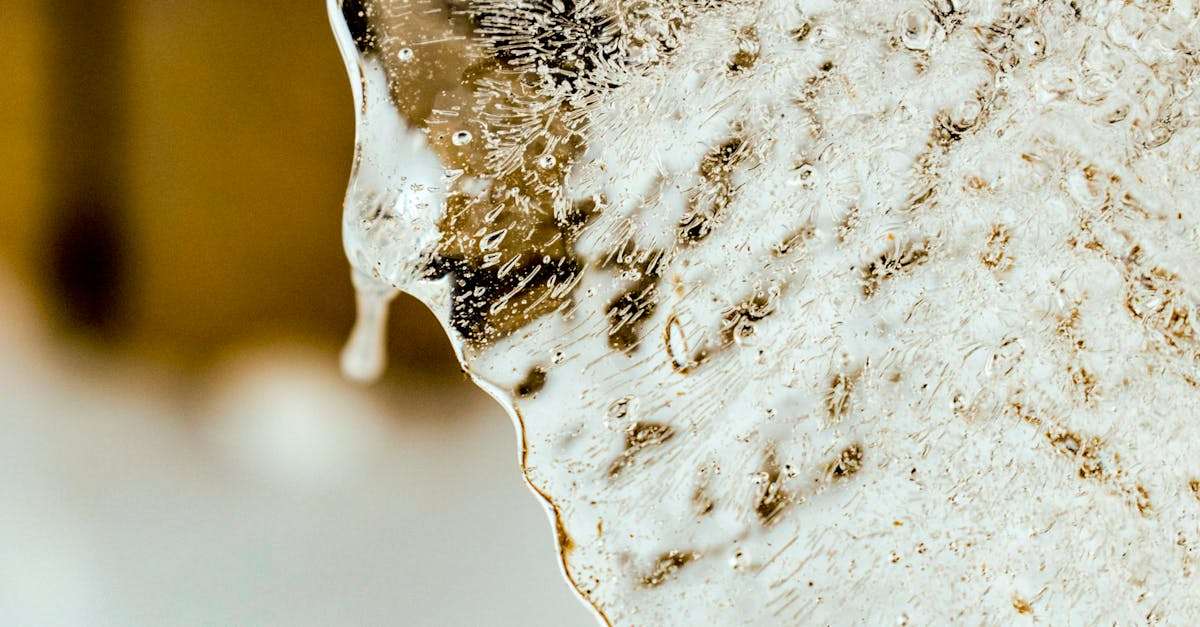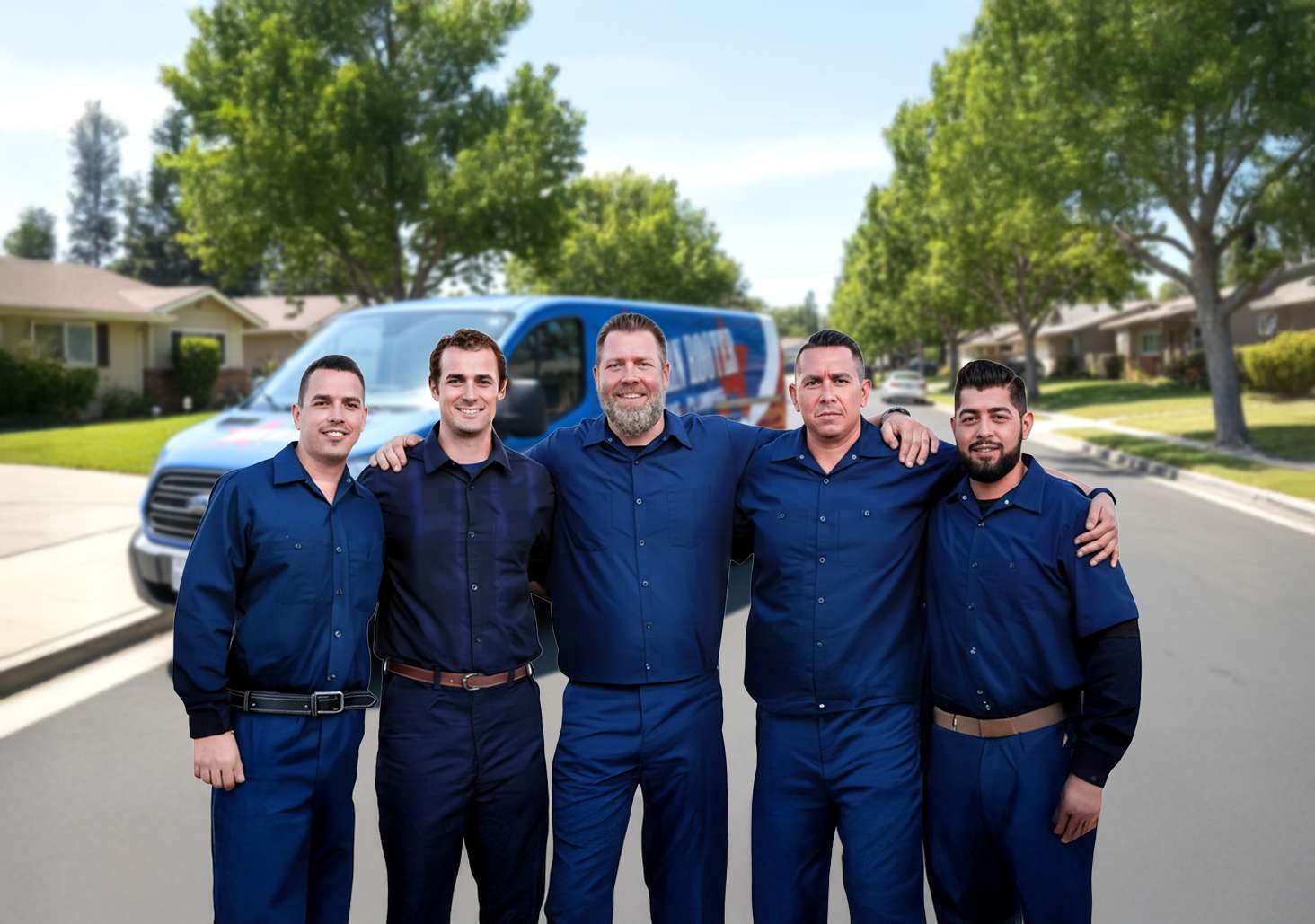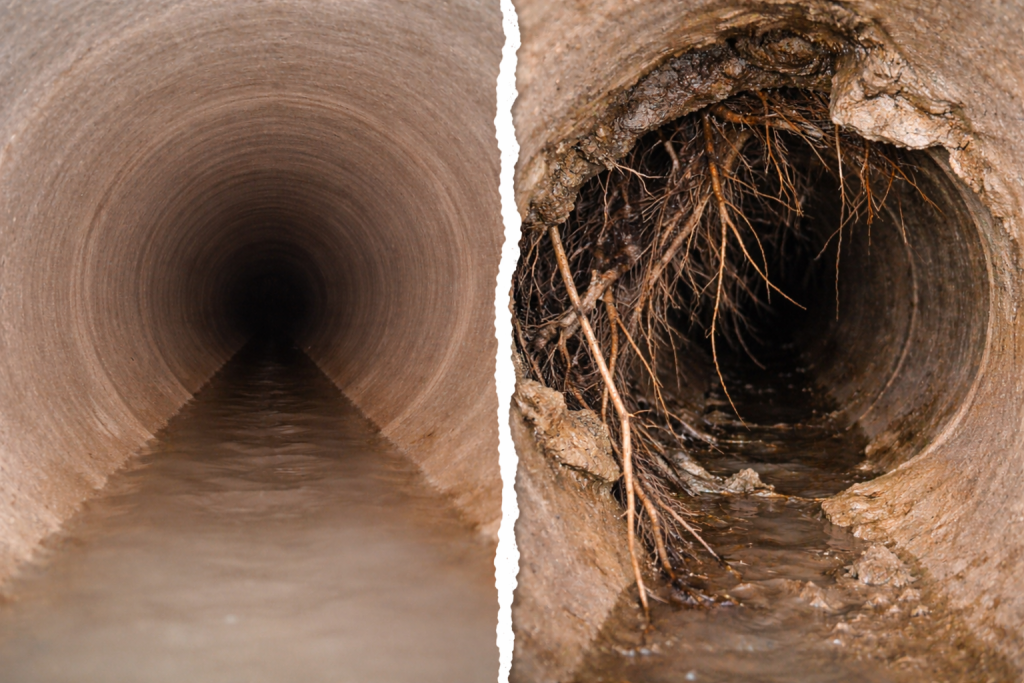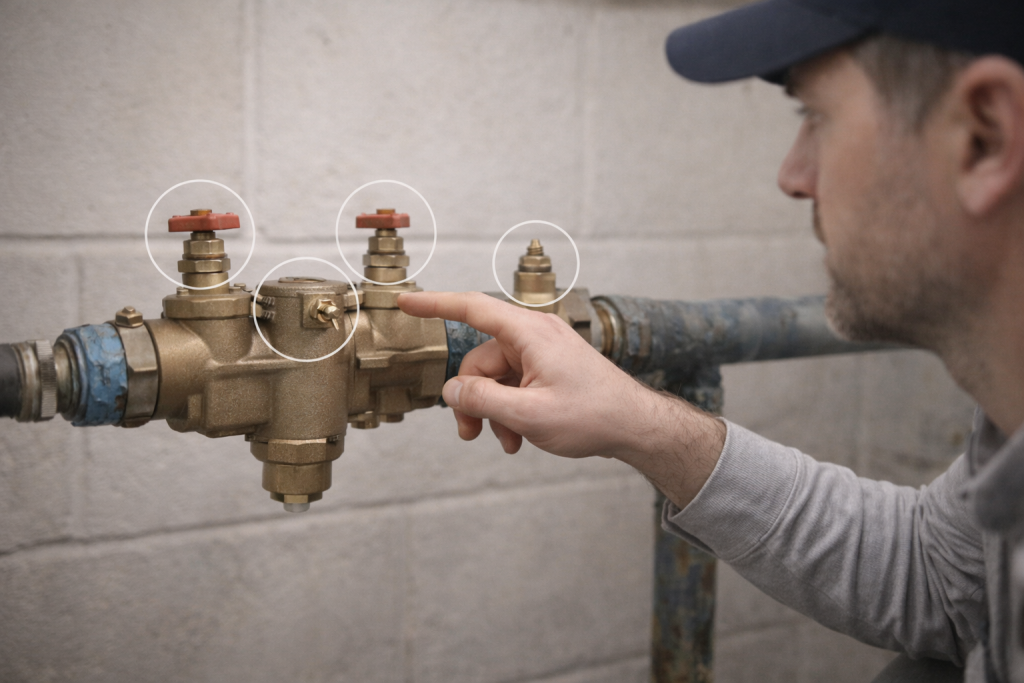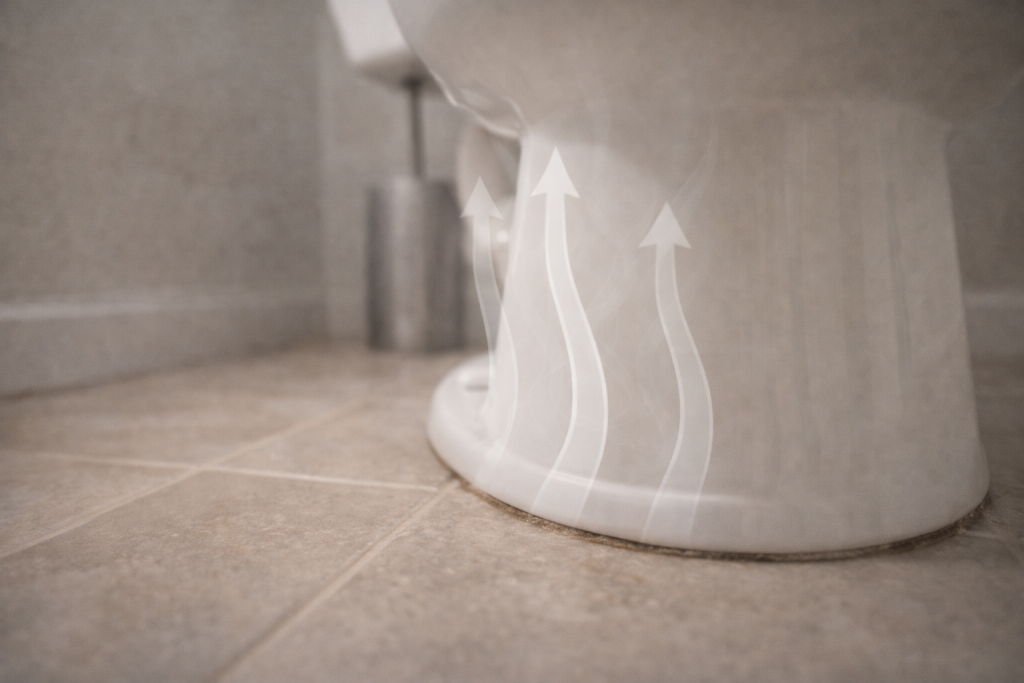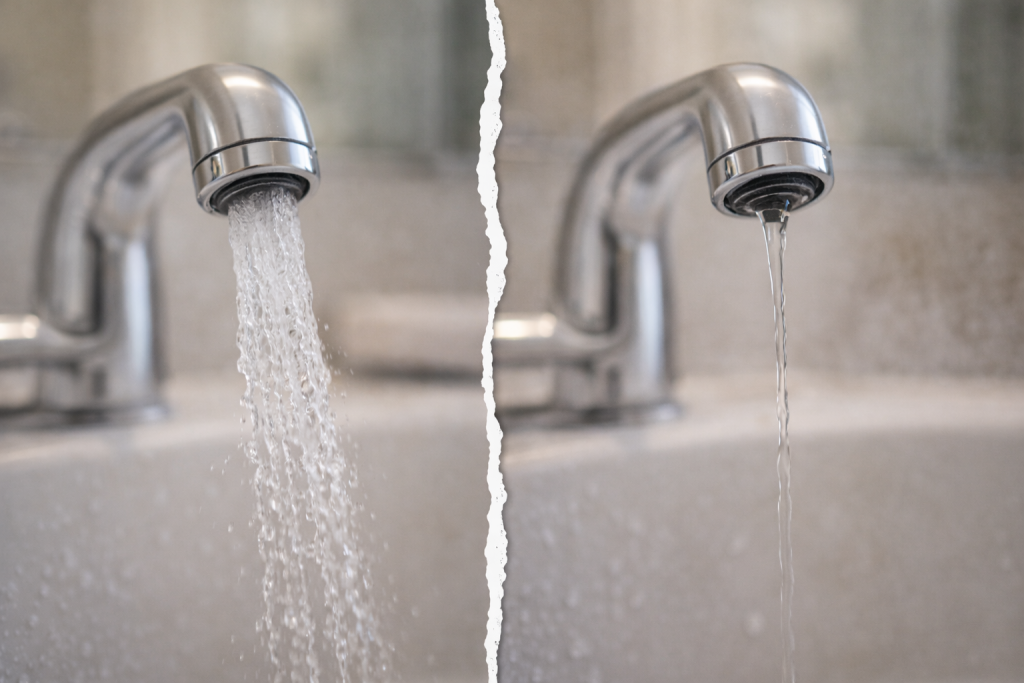Have you ever noticed a chalky residue on your faucets or struggled to get a good lather while washing your hands? If so, you might be dealing with hard water in your Arcadia home. As your local plumbing experts at Western Rooter & Plumbing, we’ve seen firsthand how hard water can wreak havoc on plumbing systems throughout Los Angeles, Orange, and San Bernardino counties. In this comprehensive guide, we’ll explore the telltale signs of hard water damage, its impact on your home’s plumbing, and effective solutions to protect your pipes and appliances.
Hard water is more than just a minor inconvenience. It’s a common issue that can lead to serious plumbing problems if left unchecked. The high mineral content, primarily calcium and magnesium, can accumulate in your pipes and appliances over time, potentially causing clogs, reduced efficiency, and even premature system failures. But don’t worry – with the right knowledge and proactive measures, you can safeguard your plumbing and enjoy the benefits of cleaner, softer water throughout your home.
In the following sections, we’ll dive deep into understanding hard water, recognizing its signs, and implementing practical solutions to mitigate its effects. Whether you’re a homeowner in Arcadia or the surrounding areas, this guide will equip you with the information you need to make informed decisions about your plumbing health. Let’s get started on your journey to better water quality and a more efficient plumbing system!
Understanding Hard Water: What It Is and Why It Matters
Hard water is a common phenomenon that affects many households in our service area. But what exactly makes water “hard,” and why should you be concerned about it? Let’s break it down in simple terms.
The Science Behind Hard Water
At its core, hard water is simply water that contains high levels of dissolved minerals, primarily calcium and magnesium. As rainwater falls and seeps through the ground, it picks up these minerals from rocks and soil. The amount of minerals absorbed depends on the geological makeup of your region. Here in Southern California, our water tends to be on the harder side due to the mineral-rich composition of our local terrain.
It’s important to note that the hardness of water is measured in grains per gallon (gpg) or parts per million (ppm). Water with more than 7 gpg or 120 ppm is generally considered hard. In many areas we serve, including Arcadia and parts of Los Angeles County, water hardness can exceed these levels, sometimes significantly.
The Impact of Hard Water on Your Home
While hard water isn’t harmful to your health, it can cause a variety of issues in your home:
- Plumbing Problems: Over time, mineral deposits can build up inside pipes, reducing water flow and potentially leading to clogs or even pipe damage.
- Appliance Inefficiency: Dishwashers, washing machines, and water heaters can all suffer from scale buildup, reducing their efficiency and lifespan.
- Aesthetic Issues: Hard water can leave spots on dishes, create soap scum in bathtubs and sinks, and make clothing appear dingy after washing.
- Skin and Hair Effects: Many people find that hard water leaves their skin feeling dry and their hair looking dull.
Understanding these impacts is crucial for homeowners in our service area. By recognizing the signs of hard water, you can take proactive steps to protect your plumbing and improve your overall water quality.
The Environmental and Economic Considerations
It’s worth noting that hard water can have broader implications beyond just your home’s plumbing. From an environmental perspective, the reduced efficiency of appliances means higher energy consumption, which can increase your carbon footprint. Economically, the frequent replacement of appliances and potential plumbing repairs can add up to significant costs over time.
At Western Rooter & Plumbing, we believe in empowering our customers with knowledge. By understanding the nature of hard water and its potential impacts, you’re better equipped to make informed decisions about your home’s water quality and plumbing health. In the next section, we’ll explore how to identify the signs of hard water in your home, so you can take action before serious problems develop.
Telltale Signs of Hard Water in Your Home
Recognizing the presence of hard water in your Arcadia home is the first step towards addressing the issue. While some signs are obvious, others might be more subtle. Let’s explore the key indicators that suggest you’re dealing with hard water.
Visible Mineral Deposits
One of the most noticeable signs of hard water is the presence of chalky, white deposits on surfaces that frequently come into contact with water. Keep an eye out for:
- Scale buildup on faucets and showerheads
- White or gray crusty deposits around drain openings
- Cloudy residue on glass shower doors or tiles
- Spots on dishes and glassware after washing
These mineral deposits not only look unsightly but can also be challenging to clean. If you find yourself constantly battling these stubborn stains, it’s a strong indication that your water has a high mineral content.
Plumbing and Appliance Issues
Hard water can take a toll on your plumbing system and water-using appliances. Be aware of these potential problems:
- Reduced water pressure due to mineral buildup in pipes
- Frequent clogs in drains or toilets
- Unusual noises coming from your water heater
- Decreased efficiency of dishwashers and washing machines
- Shorter lifespan of water-dependent appliances
If you’re experiencing any of these issues, particularly if they seem to occur more frequently than expected, hard water could be the culprit.
Effects on Personal Care
Hard water can also impact your personal grooming routine. Look out for:
- Dry, itchy skin after showering
- Hair that feels sticky or looks dull
- Difficulty working up a lather with soap or shampoo
- Excessive use of personal care products to achieve desired results
Many of our customers in Arcadia and surrounding areas report these issues, which often improve significantly after addressing their hard water problems.
Water Taste and Appearance
While not always noticeable, hard water can affect the taste and appearance of your drinking water:
- A slightly metallic taste
- Water that appears cloudy when first poured
- Tea or coffee that tastes different or has a film on top
These subtle changes in water quality can be easy to overlook but are worth paying attention to.
Energy Bill Fluctuations
An unexpected sign of hard water problems can be an increase in your energy bills. When mineral deposits accumulate in your water heater and other appliances, they have to work harder to function properly, consuming more energy in the process.
By being attentive to these signs, you can catch hard water issues early and take appropriate action. At Western Rooter & Plumbing, we’ve helped countless homeowners in Arcadia and across Los Angeles, Orange, and San Bernardino counties identify and address hard water problems. In the next section, we’ll delve into the specific ways hard water can damage your plumbing system, helping you understand the importance of timely intervention.
The Hidden Dangers: How Hard Water Damages Your Plumbing
While the visible signs of hard water can be frustrating, it’s the hidden damage occurring within your plumbing system that poses the greatest threat. As your trusted plumbing experts in Arcadia and the surrounding areas, we at Western Rooter & Plumbing want to shed light on the potential risks hard water poses to your home’s plumbing infrastructure.
Pipe Corrosion and Blockages
One of the most significant threats hard water poses to your plumbing is the gradual buildup of mineral deposits inside your pipes. Here’s how this process unfolds:
- Mineral Accumulation: As hard water flows through your pipes, it leaves behind tiny amounts of calcium and magnesium.
- Scale Formation: Over time, these minerals form a hard, crusty layer known as scale.
- Reduced Flow: The scale narrows the interior diameter of pipes, restricting water flow.
- Increased Pressure: To compensate for reduced flow, water pressure increases, putting additional stress on your plumbing.
- Potential Leaks: The combination of corrosion and increased pressure can lead to pinhole leaks or even pipe bursts.
This process is often slow and invisible, making it particularly dangerous. By the time you notice reduced water pressure or experience a leak, significant damage may have already occurred.
Impact on Water Heaters
Your water heater is particularly vulnerable to hard water damage. Here’s why:
- Sediment Buildup: Minerals settle at the bottom of the tank, forming a layer of sediment.
- Reduced Efficiency: This sediment acts as an insulator, making it harder for the heater to warm the water efficiently.
- Increased Energy Consumption: The heater must work harder and longer to heat water, leading to higher energy bills.
- Shortened Lifespan: The extra strain can significantly reduce the lifespan of your water heater.
In extreme cases, we’ve seen water heaters fail prematurely due to severe scale buildup, leaving homeowners with unexpected replacement costs.
Damage to Fixtures and Appliances
Hard water doesn’t just affect your pipes and water heater. It can also cause problems with various fixtures and appliances:
- Faucets and Showerheads: Mineral deposits can clog aerators and spray nozzles, reducing water flow and efficiency.
- Dishwashers and Washing Machines: Scale buildup on heating elements and in hoses can lead to inefficient operation and potential breakdowns.
- Coffee Makers and Kettles: These appliances often suffer from rapid scale accumulation, affecting performance and taste.
The cumulative effect of hard water on these various components of your home can lead to frequent repairs, replacements, and increased maintenance costs.
Long-term Financial Implications
While the immediate effects of hard water might seem manageable, the long-term financial impact can be substantial:
- Higher Utility Bills: Reduced efficiency in appliances and water heaters leads to increased energy consumption.
- Frequent Repairs: Plumbing fixtures and appliances may require more frequent servicing or replacement.
- Decreased Home Value: Persistent hard water issues can affect your home’s plumbing infrastructure, potentially impacting its value.
At Western Rooter & Plumbing, we’ve seen how addressing hard water problems early can lead to significant long-term savings for homeowners in Arcadia and beyond.
Environmental Considerations
It’s worth noting that the increased energy consumption resulting from hard water issues doesn’t just affect your wallet – it also has environmental implications. By addressing hard water problems, you’re not only protecting your home but also contributing to reduced energy usage and a smaller carbon footprint.
Understanding these hidden dangers is crucial for maintaining a healthy plumbing system. In the next section, we’ll explore effective solutions to combat hard water and protect your home from its damaging effects. Remember, early intervention is key to preventing costly repairs and ensuring the longevity of your plumbing system.
Effective Solutions for Combating Hard Water
Now that we’ve explored the signs and dangers of hard water, it’s time to focus on solutions. At Western Rooter & Plumbing, we believe in empowering our Arcadia customers with a range of options to address their hard water issues. Let’s dive into the most effective methods for tackling this common problem.
Water Softeners: The Gold Standard
Water softeners are widely considered the most comprehensive solution for hard water problems. Here’s how they work and why they’re so effective:
How Water Softeners Function
- Ion Exchange: Water softeners use a process called ion exchange to remove calcium and magnesium ions from your water.
- Resin Bed: As water flows through a tank filled with resin beads, the hard minerals are attracted to the beads and replaced with sodium ions.
- Regeneration: Periodically, the system flushes the accumulated minerals and recharges the resin beads with a salt solution.
Benefits of Water Softeners
- Comprehensive Protection: Softens water throughout your entire home
- Prevents Scale Buildup: Protects pipes, appliances, and fixtures from mineral deposits
- Improves Soap Efficiency: Allows soaps and detergents to lather more easily
- Extends Appliance Lifespan: Reduces wear and tear on water-using appliances
Considerations
- Initial Cost: Water softeners represent a significant upfront investment
- Ongoing Maintenance: Regular salt replenishment and occasional servicing are required
- Environmental Impact: Some areas have restrictions on water softeners due to concerns about salt discharge
Salt-Free Water Conditioners: An Alternative Approach
For those concerned about salt usage or looking for a low-maintenance option, salt-free water conditioners offer an alternative:
How They Work
- Template Assisted Crystallization (TAC): These systems change the structure of mineral ions, preventing them from sticking to surfaces.
- No Salt or Chemicals: The process doesn’t remove minerals but alters their behavior in water.
Advantages
- No Salt Required: Ideal for those on low-sodium diets or concerned about environmental impact
- Low Maintenance: Requires minimal upkeep compared to traditional softeners
- Retains Beneficial Minerals: Doesn’t remove calcium and magnesium from water
Limitations
- Less Effective on Existing Scale: May not remove existing buildup in pipes and appliances
- Variable Results: Effectiveness can vary depending on water chemistry and usage patterns
Reverse Osmosis Systems: For Drinking Water
While not a whole-house solution, reverse osmosis (RO) systems are excellent for providing high-quality drinking water:
How RO Systems Work
- Filtration Process: Water is forced through a semi-permeable membrane, removing a wide range of contaminants, including hardness minerals.
- Multi-Stage Filtration: Most systems include pre and post-filters for comprehensive water treatment.
Benefits
- Superior Water Quality: Removes up to 99% of contaminants, including minerals that cause hardness
- Improved Taste: Produces clean, great-tasting water for drinking and cooking
- Targeted Solution: Ideal for households primarily concerned with drinking water quality
Considerations
- Limited Scope: Typically only treats water at a single point of use
- Water Waste: Some water is discarded during the filtration process
- Regular Maintenance: Filters and membranes need periodic replacement
Magnetic and Electronic Water Descalers: A Non-Invasive Option
These devices offer a non-invasive approach to hard water treatment:
How They Work
- Magnetic Fields: Use magnetic or electric fields to alter the behavior of minerals in water
- No Chemical Changes: Aim to prevent scale formation without changing water chemistry
Pros and Cons
- Easy Installation: Can be installed without cutting into plumbing
- No Maintenance: Require no ongoing upkeep
- Controversial Effectiveness: Scientific opinions vary on their long-term efficacy
DIY Solutions for Localized Issues
For minor hard water problems or as a supplement to whole-house treatments, consider these DIY approaches:
- Vinegar Cleaning: Regular cleaning with vinegar can help remove scale buildup on fixtures
- Citric Acid Treatments: Periodic flushing of appliances with citric acid solutions can help remove mineral deposits
- Showerhead Filters: Attachable filters can reduce mineral content in shower water
While these methods can help manage symptoms, they don’t address the root cause of hard water.
At Western Rooter & Plumbing, we understand that every home in Arcadia and the surrounding areas has unique needs. That’s why we offer personalized consultations to help you choose the best hard water solution for your situation. In the next section, we’ll discuss how to maintain your chosen system and maximize its effectiveness in protecting your plumbing.
Maintaining Your Hard Water Solution: Tips for Long-Term Success
Implementing a hard water solution is a significant step towards protecting your plumbing system and improving your water quality. However, to ensure long-term success and maximize the benefits of your chosen system, proper maintenance is crucial. At Western Rooter & Plumbing, we’ve helped countless homeowners in Arcadia and across Los Angeles, Orange, and San Bernardino counties maintain their water treatment systems. Here are our expert tips for keeping your hard water solution in top condition.
Regular Maintenance for Water Softeners
If you’ve opted for a traditional water softener, consistent upkeep is key to its performance:
- Salt Level Checks: Inspect the salt level in the brine tank monthly. Maintain the salt level at least half-full.
- Salt Bridge Inspection: Occasionally check for salt bridges (hardened layers of salt) in the brine tank. Break them up if found to ensure proper operation.
- Resin Bed Cleaning: Use a resin bed cleaner annually to remove iron and other contaminants that can reduce efficiency.
- Brine Tank Cleaning: Clean the brine tank annually to prevent mold growth and salt mushing.
- Water Quality Testing: Periodically test your water to ensure the softener is functioning effectively.
Remember, a well-maintained water softener can last 10-15 years or more, making your investment worthwhile.
Caring for Salt-Free Water Conditioners
While generally low-maintenance, salt-free systems still benefit from some attention:
- Filter Changes: If your system includes pre-filters, replace them as recommended by the manufacturer.
- Annual Inspection: Have a professional check the system annually to ensure it’s functioning correctly.
- Water Testing: Regularly test your water to confirm the system is effectively conditioning your water.
- Descaling: Occasionally descale fixtures and appliances to remove any residual buildup.
